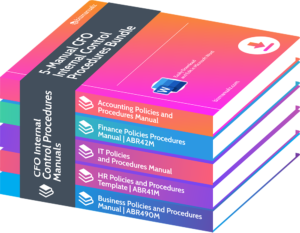What Should a CFO Know About Blockchain In Finance?

Are you a CFO curious about the power of blockchain technology in the world of finance? Look no further! This article dives into the important role of blockchain in revolutionizing financial processes. As technology rapidly advances, it’s crucial for financial leaders to stay informed and adapt to the changing landscape with new Fintech skills to remain competitive. What should a CFO know about blockchain in finance?
What is Blockchain in Finance?
Blockchain in finance is a decentralized digital ledger that records transactions across multiple computers, providing transparency, security, and efficiency in financial operations. By removing intermediaries, this technology reduces costs and speeds up transactions. Bitcoin uses blockchain technology to process and secure transactions.
Additionally, it allows for the use of smart contracts, which automatically execute predefined terms. The potential of blockchain to revolutionize various financial sectors, such as banking, supply chain management, and asset transfers, is immense.
A prime example of its impact can be seen in the successful implementation of RippleNet by Santander Bank, enabling real-time cross-border payments.
Why is Blockchain Important in Finance?
Blockchain plays a crucial role in finance by enhancing transparency, security, and efficiency in transactions. It eliminates the need for intermediaries, reduces costs, and minimizes the risk of fraud. In addition, blockchain provides immutable records and real-time visibility, allowing for faster settlements and improved regulatory compliance.
A prime example of the significance of blockchain in finance can be seen through the World Bank’s use of blockchain technology to issue the first-ever bond completely managed on the blockchain. This groundbreaking transaction demonstrated the potential of blockchain in transforming financial systems on a global scale.
What are the Benefits of Blockchain in Finance?
Blockchain technology offers numerous benefits in the finance industry. These include:
- Enhanced security
- Improved transparency
- Streamlined processes
- Efficient settlements
- Enhanced traceability
By leveraging these advantages, blockchain has the potential to revolutionize various areas of finance, such as payments, auditing, and supply chain management. Its decentralized nature and cryptographic encryption make it highly resistant to fraud and hacking, while the distributed ledger allows for all participants to view and verify transactions, increasing trust and reducing the risk of fraud.
Additionally, blockchain eliminates the need for intermediaries, reducing costs and time associated with traditional financial transactions, and enables real-time settlement of transactions, eliminating the need for lengthy reconciliation processes. The immutable ledger records every transaction, providing a transparent audit trail and simplifying regulatory compliance.
How Does Blockchain Work in Finance?
Blockchain technology in finance operates through a series of steps that ensure transparency, security, and efficiency in transactions. These steps include:
- Transaction initiation: Participants create a transaction request with relevant details.
- Verification: The transaction request is verified by multiple nodes in the blockchain network.
- Block creation: Verified transactions are grouped into blocks and added to the existing chain.
- Consensus: Nodes in the network agree on the validity of the new block through consensus mechanisms like proof-of-work or proof-of-stake.
- Validation: The new block is validated, ensuring that it adheres to the predefined rules and protocols.
- Block addition: Once validated, the new block is added to the blockchain, becoming a permanent part of the ledger.
Blockchain technology in finance offers benefits such as increased security, reduced costs, faster transactions, and enhanced transparency. CFOs should consider exploring blockchain solutions for their organizations to streamline financial operations and improve trust in the financial system.
What is the Role of Smart Contracts in Blockchain?
Smart contracts play an integral role in the functionality of blockchain technology. These contracts are self-executing and are coded with the terms of the agreement, allowing for automatic execution and enforcement of actions once predetermined conditions are met.
By eliminating the need for intermediaries, smart contracts promote transparency, efficiency, and trust in financial transactions. They also enable automated processes, reducing costs and minimizing the risk of fraud.
The impact of smart contracts is far-reaching, revolutionizing industries such as finance by streamlining processes like payments, asset transfers, and compliance. In the financial sector, smart contracts enable faster settlements, reduce paperwork, enhance security, and allow for real-time auditing.
How Does Blockchain Ensure Security in Financial Transactions?
Blockchain ensures security in financial transactions through a series of steps:
- Decentralization: Transactions are recorded on multiple computers (nodes) across the network, making it difficult for hackers to manipulate data.
- Consensus Mechanisms: Blockchain uses consensus algorithms like Proof of Work or Proof of Stake to validate and approve transactions, preventing unauthorized changes or fraudulent activities.
- Cryptographic Hashing: Each transaction is encrypted using cryptographic hashing, creating a unique digital fingerprint. This ensures data integrity and prevents tampering.
- Immutability: Once a transaction is recorded on the blockchain, it cannot be altered or erased. This creates a transparent and auditable record of all financial activities.
- Encryption and Digital Signatures: Blockchain uses advanced encryption techniques and digital signatures to secure transactions, ensuring that only authorized parties can access or modify the data.
In 2019, an attempted theft of funds from a cryptocurrency exchange was thwarted by the blockchain’s security measures. The transparency and immutability of the blockchain allowed authorities to trace the attempted theft and apprehend the hacker, safeguarding the financial interests of the exchange and its users. This showcases how blockchain effectively ensures security in financial transactions.
What are the Different Types of Blockchains Used in Finance?
There are various types of blockchains utilized in finance, each serving its unique characteristics and purposes. Some of the most common types include:
- Public blockchains, such as Bitcoin and Ethereum, are accessible to everyone and promote transparency and decentralization.
- In contrast, private blockchains are restricted to a specific group of participants and offer more control and privacy.
- A hybrid of public and private blockchains, consortium blockchains involve multiple organizations collaborating to validate transactions.
The choice of blockchain type depends on the specific needs and requirements of the finance industry, such as security, scalability, and regulatory compliance. Having a thorough understanding of the different types of blockchains can assist CFOs in making informed decisions when implementing blockchain technology in finance.
What Should a CFO Know About Implementing Blockchain in Finance?
In order to successfully implement blockchain in finance, CFOs must have a comprehensive understanding of its potential benefits and challenges. This can be achieved by following these steps:
- Educate Themselves: CFOs should take the time to familiarize themselves with blockchain technology, including its features and applications in the finance industry.
- Identify Potential Use Cases: It is important for CFOs to assess their organization and identify areas where blockchain can improve processes and increase efficiency, such as supply chain management or payment systems.
- Collaborate with IT and Legal Departments: In order to ensure regulatory compliance, cybersecurity, and seamless integration of blockchain solutions, CFOs should work closely with their IT and legal departments.
- Conduct a Cost-Benefit Analysis: Before implementing blockchain, CFOs must conduct a thorough analysis of the costs and potential risks associated with the technology. This includes considering scalability issues and data privacy concerns.
Fact: According to Deloitte’s 2020 Global Blockchain Survey, 55% of respondents believe that blockchain technology will become a critical asset for their organizations within the next three years.
What Are the Challenges of Implementing Blockchain in Finance?
Implementing blockchain in finance presents a unique set of obstacles that organizations must overcome. These challenges include navigating regulatory hurdles, addressing scalability issues, ensuring interoperability, and finding skilled professionals.
The constantly evolving regulatory frameworks surrounding blockchain and cryptocurrencies make compliance a difficult task. The high volume of transactions processed on the blockchain also poses a scalability challenge.
Additionally, integrating different blockchain platforms with existing legacy systems can be a hurdle. Finally, the demand for professionals with expertise in blockchain technology adds to the difficulty of successful implementation.
Despite these challenges, the global blockchain market is projected to reach $39.7 billion by 2025, showcasing the increasing interest and potential of this technology in various industries, especially finance.
What Are the Key Considerations for Choosing a Blockchain Platform?
When selecting a blockchain platform, there are several important factors to keep in mind:
- Scalability: It is crucial to determine if the platform has the capacity to handle the necessary volume of transactions for your business needs.
- Security: It is important to assess the platform’s security features and protocols to ensure the protection of sensitive financial data.
- Consensus Mechanism: It is essential to understand the consensus algorithm used by the platform and how it affects transaction validation and network stability.
- Interoperability: It is worth considering if the platform can integrate with existing systems and if it supports interoperability with other blockchain networks.
- Developer Community: The size and activity of the platform’s developer community should be evaluated, as it can indicate ongoing support and innovation.
- Cost: The platform’s pricing structure and associated fees should be carefully analyzed, taking into account the long-term financial implications of implementation and maintenance.
How Can Blockchain Improve Financial Processes and Efficiency?
Blockchain technology has the potential to completely transform financial processes and greatly improve efficiency. Here are the steps that demonstrate how blockchain can achieve this goal:
- Streamlining Transactions: By eliminating intermediaries, blockchain significantly reduces the time and cost associated with traditional financial transactions.
- Enhancing Security: The decentralized nature of blockchain ensures that all financial data is encrypted and cannot be tampered with, providing a higher level of security for transactions.
- Increasing Transparency: With every transaction recorded on the blockchain visible to all participants, transparency is greatly enhanced and the risk of fraud is reduced.
- Automating Processes: The use of smart contracts on the blockchain allows for the automation of various financial processes, eliminating the need for manual intervention and reducing the likelihood of errors.
- Improving Auditability: The immutable ledger of blockchain makes it easier for auditors to verify transactions, ultimately improving the efficiency and accuracy of auditing processes.
What Are the Potential Use Cases of Blockchain in Finance?
Blockchain technology has the potential to revolutionize the finance industry by streamlining processes, enhancing transparency, and reducing costs. There are various potential use cases of blockchain in finance, including:
- Cross-border payments: Blockchain can facilitate faster, cheaper, and more secure cross-border transactions without the need for intermediaries.
- Smart contracts: Blockchain-based smart contracts can automate and enforce contractual agreements, reducing the need for manual processing and minimizing disputes.
- KYC and identity verification: Blockchain can enable secure and efficient verification of customer identities, reducing fraud and improving compliance.
- Supply chain finance: Blockchain can enhance traceability and transparency in supply chains, enabling easier financing options for suppliers.
- Asset tokenization: Blockchain can enable the fractional ownership and trading of assets, such as real estate or artwork, making them more accessible to a wider range of investors.
How Can Blockchain Be Used for Secure and Efficient Payment Processing?
Blockchain technology has the potential to revolutionize payment processing by providing secure and efficient transactions. Here are the steps to understand how blockchain can be utilized for this purpose:
- Decentralization: By eliminating intermediaries, blockchain enables direct peer-to-peer transactions.
- Transparency: All transactions are recorded on a public ledger, ensuring transparency and reducing the risk of fraud.
- Security: Advanced cryptographic techniques are used in blockchain to secure transactions, making it difficult to tamper with or hack.
- Speed and Cost: Payments can be processed quickly and at a lower cost compared to traditional systems with blockchain technology.
- Smart Contracts: The implementation of smart contracts on blockchain allows for automatic execution of payments when predetermined conditions are met.
What Are the Applications of Blockchain in Auditing and Compliance?
Blockchain technology has numerous applications in the finance industry, specifically in auditing and compliance. These include:
- Transparency: With blockchain, record-keeping becomes transparent and immutable, making it easier for auditors to trace and verify transactions.
- Smart Contracts: Compliance can be automated through smart contracts, which execute predefined rules to ensure transactions meet regulatory requirements.
- Real-time Auditing: By utilizing blockchain, auditors can access real-time data, reducing the time and effort needed for traditional auditing processes.
- Identity Verification: Blockchain provides a secure way to store and verify identity information, minimizing the risk of fraud and facilitating efficient compliance with Know Your Customer (KYC) regulations.
- Regulatory Reporting: Simplifying regulatory reporting, blockchain serves as a single source of truth for regulators to access accurate and up-to-date information.
The implementation of blockchain in auditing and compliance brings increased efficiency, transparency, and accuracy, revolutionizing traditional financial processes.
How Can Blockchain Improve Supply Chain Management in Finance?
The implementation of blockchain technology in supply chain management has the potential to bring numerous benefits to the finance industry. Here are some ways it can enhance supply chain management:
- Enhanced transparency: Blockchain provides a decentralized and immutable ledger, allowing for real-time visibility into the supply chain.
- Improved traceability: Every transaction recorded on the blockchain creates an auditable trail, reducing the risk of fraud and counterfeit products.
- Streamlined processes: Smart contracts automate and enforce agreements, reducing paperwork and minimizing manual errors.
- Efficient inventory management: Blockchain enables real-time tracking of inventory, optimizing stock levels and reducing carrying costs.
- Faster dispute resolution: With all relevant information stored on the blockchain, disputes can be resolved quickly and accurately.
Frequently Asked Questions

What is blockchain and how does it relate to finance?
Blockchain is a decentralized digital ledger technology that allows for secure and transparent transactions. It has the potential to revolutionize the financial industry by improving efficiency and reducing costs.
What benefits can a CFO expect from implementing blockchain technology in finance?
CFOs can expect improved efficiency, cost reduction, increased transparency, and enhanced security from implementing blockchain technology in finance. It can also lead to better risk management and streamlined processes.
Are there any specific industries in finance that can benefit from blockchain technology?
Yes, blockchain technology can benefit a variety of industries in finance, including banking, insurance, supply chain, and trade finance. It can also be useful for processes like payment transactions, contract management, and auditing.
What are the key challenges that a CFO should be aware of when implementing blockchain in finance?
Some key challenges that a CFO should be aware of include regulatory compliance, integration with existing systems, scalability issues, and potential resistance from employees. It is important to carefully evaluate and plan for these challenges before implementing blockchain technology.
How can a CFO ensure the successful implementation of blockchain technology in finance?
A CFO should first thoroughly understand the technology and its potential applications in their organization. They should also work closely with IT and other departments to develop a strategic plan for implementation, addressing any potential challenges. It is also important to continuously evaluate and adapt the implementation strategy as needed.
Are there any risks or security concerns associated with using blockchain in finance?
While blockchain technology offers enhanced security and transparency, there are still potential risks and security concerns to consider. These can include cyber attacks, data privacy, and the potential for fraud. It is important for a CFO to work closely with their IT team to address and mitigate these risks.
















Leave a Reply